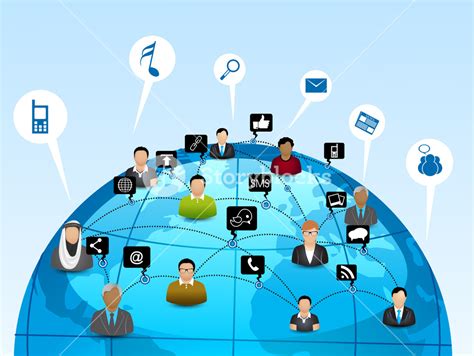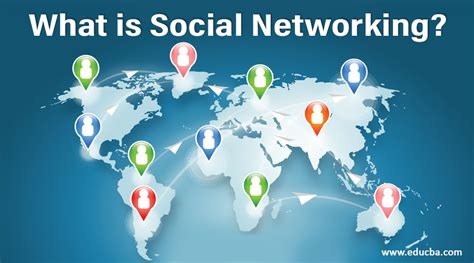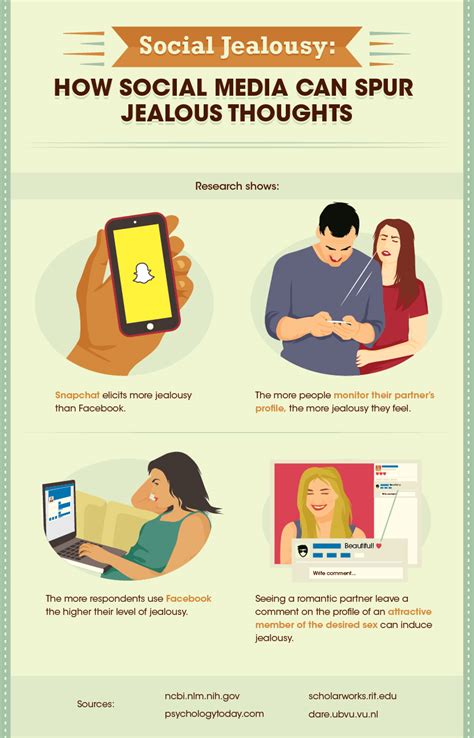In this era of interconnectedness, the world has witnessed a profound transformation in the way individuals interact and build meaningful connections, all thanks to the technological advancements that have revolutionized our lives. The advent of online networks and communication platforms has fundamentally altered the dynamics of human relationships, molding our social fabric into a new and intricate pattern.
Evolution of the digital landscape has given rise to a plethora of platforms that serve as virtual meeting grounds, where people can share their thoughts, exchange ideas, and engage in conversations without the constraints of physical proximity. These digital domains have become a sanctuary for self-expression, fostering a sense of belonging and creating a sense of community that transcends geographical boundaries.
However, as our reliance on digital media for social interactions burgeons, questions emerge about the impact of these virtual realms on the depth and authenticity of our relationships. With the click of a button, one can present an idealized version of themselves to the world, showcasing their successes and hiding their vulnerabilities. This curated self-image permeates our online interactions, blurring the line between reality and the virtual realm, leading to an intriguing paradox of simultaneous connectivity and disconnection.
The Rise of Online Connections

In today's interconnected world, the influence of digital platforms on the way people connect with each other has become undeniable. As technology continues to advance, social media and various online platforms have emerged as the new frontier where individuals forge bonds, establish connections, and nurture relationships.
Reimagining Connectivity: With the advent of social media, the concept of connectivity has taken on a whole new meaning. People no longer have to rely solely on traditional means of communication to connect with others. The internet has opened up a vast array of possibilities, allowing individuals to establish connections with people from different geographical locations, cultural backgrounds, and even across language barriers. As a result, people can now form friendships, romantic relationships, and professional networks with individuals they may have never met in person.
Virtual Communities: Social media platforms have given rise to virtual communities where like-minded individuals can come together to share their interests, passions, and experiences. These communities serve as a space for individuals to express themselves, seek support, and find a sense of belonging. Online forums, groups, and chats enable people with similar hobbies, goals, or even personal challenges to connect with one another, fostering a sense of community and camaraderie.
Enhanced Accessibility: Online connections have also made personal relationships more accessible to individuals who may face physical or social barriers in their everyday lives. People with disabilities, introverts, or those living in isolated areas can now connect with others and establish meaningful relationships from the comfort of their own homes. The internet has become a powerful tool in breaking down barriers and ensuring that everyone has an equal opportunity to form personal connections.
Challenges and Considerations: Despite the countless benefits offered by online connections, it is important to recognize and address the challenges they pose. The convenience of online interactions may sometimes lead to a lack of genuine connection or misunderstanding. Additionally, the reliance on digital communication can sometimes hinder face-to-face interactions, leading to a decrease in social skills or a sense of detachment. However, with proper balance and awareness, these challenges can be overcome, ensuring that online connections complement rather than replace traditional personal relationships.
Overall, the rise of online connections has transformed the way people connect and engage with one another. From expanding social circles to providing support networks, social media and online platforms have revolutionized the concept of connectivity, offering new opportunities for individuals to build relationships and bridge gaps in this interconnected world.
Blurred Boundaries of Individual and Digital Lives
Within the realm of the digital era, there has been a gradual dissolution of boundaries between individual lives and the vast digital landscape. This phenomenon, marked by the pervasive influence of social media platforms, has redefined how people perceive and navigate their personal and digital identities. The advent of this interconnectedness has unveiled a multitude of implications that both enrich and complicate the fabric of personal relationships.
The integration of social media into daily routines has led to a significant blurring of boundaries, manifesting in the way individuals present themselves, communicate, and interact with others. Social media platforms have become quasi-extensions of personal identities, where individuals curate and showcase their lives through carefully constructed profiles and posts. Consequently, the distinction between the offline and online dimensions of existence has become increasingly convoluted, as individuals maintain both a digital persona and an offline self.
Moreover, the continual exposure to digital connections and the perpetual accessibility of social media has led individuals to navigate through a complex web of virtual relationships. As the lines between genuine friendships and digital acquaintances become indistinct, the significance and depth of personal relationships may undergo reevaluation. The ease of online communication often enables individuals to establish connections with people from diverse backgrounds and geographic locations, transcending the limitations of physical boundaries. However, this newfound connectivity can also foster a sense of superficiality and estrangement, as the tangible aspects of personal interactions are substituted by the convenience of virtual engagement.
The blurring of boundaries between personal and digital lives has also impacted self-perception and validation. With the advent of social media platforms, individuals find themselves immersed in a world where their worth and desirability are frequently measured in likes, comments, and followers. Consequently, the desire for social validation and recognition can supersede genuine self-expression, as individuals mold their digital identities to fit societal expectations and norms. This constant pursuit of digital affirmation can lead to feelings of inadequacy, comparison, and a distorted perception of reality, thereby affecting personal relationships both online and offline.
In conclusion, the intertwining of personal and digital lives through social media has fostered a landscape where boundaries are blurred, presenting a myriad of implications for personal relationships. The widespread incorporation of social media platforms into daily routines has led to a merging of online and offline identities, prompting individuals to navigate through a complex network of virtual connections. Moreover, the quest for social validation and recognition in the digital realm can impact self-perception and hinder genuine self-expression. As we continue to navigate this dynamic landscape, it is essential to critically examine the effects of this blurred intersection on the fabric of personal relationships.
The Role of Social Networking Sites in Sustaining Distant Connections

In today's interconnected world, where geographical distances no longer dictate the strength of relationships, long-distance connections have become increasingly common. In this digital era, social media platforms play a significant role in maintaining and nurturing these relationships. By leveraging the power of social networking sites, individuals can bridge the physical gap and stay connected with loved ones regardless of their location.
1. Creating Virtual Spaces for Shared Experiences Social media platforms provide a virtual space where individuals can recreate shared experiences, despite being physically apart. Through posts, photos, and videos, partners in a long-distance relationship can document their lives and share moments with each other, transforming mere updates into a form of connection. This allows for a sense of togetherness and creates a shared context, strengthening the emotional bond despite the physical separation. |
2. Facilitating Communication and Emotional Support Social networking sites offer various communication tools that enable long-distance partners to stay connected on a daily basis. Instant messaging, video calls, and voice chats allow for real-time conversations, substituting the absence of physical presence. These platforms also serve as a medium for emotional support, providing a safe space for individuals to express their feelings, seek advice, and offer reassurance. The constant availability of these channels helps maintain a sense of emotional closeness between partners. |
3. Building Trust and Transparency Long-distance relationships often face challenges related to trust and transparency due to the physical distance. However, social media platforms can aid in addressing these challenges by fostering transparency and openness. Partners can share their activities, interact with each other's social circles, and provide glimpses into their daily lives. This increased transparency helps build trust and reduces insecurities, as both individuals have visibility into each other's lives, despite the distance. |
4. Offering a Sense of Security and Affection For individuals in long-distance relationships, social media platforms serve as a source of reassurance and security. Regular interaction through likes, comments, and reactions on posts helps express affection and validate the relationship. In addition, public displays of support and affection on social media can act as a reminder of the commitment and love shared between partners, strengthening the bond and mitigating feelings of loneliness or insecurity. |
Impacts of Digital Communication on Intimacy
In the realm of modern communication, the emergence of digital platforms has revolutionized the way people connect and interact. As individuals increasingly turn to online channels for communication, it is essential to explore the effects of digital communication on the depth and quality of intimate relationships. This section delves into the various aspects and consequences resulting from the pervasive use of digital communication tools.
- Reduced Face-to-Face Interaction: One notable impact of digital communication on intimacy is the decline in face-to-face interaction. The convenience of online messaging, video calls, and social media platforms often replaces traditional in-person conversations. Consequently, the physical presence and non-verbal cues that enhance emotional connection and understanding may diminish, potentially weakening the bonds of intimacy.
- Enhanced Connectivity: Conversely, digital communication facilitates increased connectivity among individuals, regardless of geographical barriers. Long-distance relationships can benefit from the immediacy of text messages and the real-time connection provided by video calls, fostering a sense of closeness and intimacy over time and distance.
- Altered Perception of Intimacy: Digital communication may shape individuals' perception of intimacy. Online interactions place emphasis on curated profiles and meticulously crafted messages, potentially leading to idealized representations of oneself and others. This alteration in perception may influence expectations and understanding of intimacy, creating a disparity between digital and offline relationships.
- Information Overload: With the constant influx of messages and notifications, digital communication creates a state of information overload that can impact intimacy. The overwhelming nature of constantly being connected and the need for immediate responses may result in decreased quality of interpersonal exchanges, preventing deeper connections from forming.
- Privacy and Trust Concerns: The digital realm presents unique challenges in maintaining privacy and trust in intimate relationships. Sharing personal information and engaging in intimate conversations through digital platforms introduce risks of data breaches and unauthorized access. These concerns can lead to a sense of vulnerability and inhibition in expressing oneself freely, thereby affecting the depth of intimacy experienced.
Understanding the impacts of digital communication on intimacy is crucial in navigating the evolving landscape of personal relationships. Recognizing both the benefits and potential drawbacks of digital communication can empower individuals to cultivate and maintain meaningful connections in an increasingly digital world.
Social Media's Influence on Trust and Jealousy

In today's interconnected digital landscape, the power of online platforms is reshaping the dynamics of trust and jealousy in personal relationships. As individuals navigate virtual realms filled with curated images, posts, and interactions, the concept of trust takes on new dimensions, while jealousy can find fertile ground to flourish. By examining the intricate connection between social media and these deeply rooted emotions, we can gain insight into the complex interplay between technology and human relationships.
The Erosion of Trust: Social media's pervasive presence has introduced a multitude of factors that can erode trust within personal relationships. The advent of online communication platforms has made it easier for individuals to present cultivated versions of themselves, leading to an increasing sense of skepticism and uncertainty about authenticity. Furthermore, the constant exposure to the highlight reels of others can breed feelings of inadequacy and comparison, weakening trust in one's own worth and the intentions of others.
The Rise of Jealousy: With the accessibility of social media, jealousy has found a new breeding ground, perpetuated by the constant stream of information available at our fingertips. The ability to constantly observe and monitor the lives of others can fuel jealousy, leading to insecurities, suspicions, and strained relationships. The temptation to engage in social comparison becomes hard to resist, potentially intensifying feelings of jealousy and further eroding personal connections.
Creating Opportunities for Growth: While social media can pose challenges to trust and jealousy, it also opens avenues for personal and relational growth. By acknowledging the influence of social media platforms on trust and jealousy, individuals can actively work towards building authentic connections in both their physical and online environments. Cultivating open communication, setting boundaries, and engaging mindfully can help counteract the negative effects of social media, nurturing trust and reducing jealousy within personal relationships.
In conclusion, the omnipresence of social media in our lives has rewired the fabric of trust and jealousy within personal relationships. However, by recognizing the potential pitfalls and actively striving to build genuine connections, we can harness the positive aspects of these platforms while mitigating the detrimental effects. Through mindful engagement, individuals can navigate the complexities of trust and jealousy in the digital age, fostering healthier and more fulfilling personal relationships both online and offline.
The Influence of Online Platforms on Satisfaction in Interpersonal Connections
Within the realm of digital networks, the repercussions of social media usage on contentment in romantic and social affiliations are noteworthy. The impact of these platforms on the degree of gratification in personal bonds has become a subject of increasing interest and discussion. This section will explore the various effects that social media has on relationship satisfaction, shedding light on the complexities of virtual interaction and its consequences on heartfelt connections.
Managing Conflict in the Digital Era

With the advent of digital technology and the rise of online communication platforms, conflicts in personal relationships have taken on a new dimension. Understanding how to effectively manage these conflicts in the digital age is crucial for maintaining healthy and harmonious relationships.
1. Recognizing the Impact In this digital era, conflicts can arise from misunderstandings, miscommunication, or the inability to pick up non-verbal cues that are essential for effective communication. It is important to recognize the unique challenges posed by online interactions and how they can influence personal relationships. |
2. Building Online Communication Skills In order to manage conflicts in the digital age, individuals must develop strong online communication skills. This includes learning how to convey emotions and intentions effectively through written words, actively listening to others' perspectives, and practicing empathy and understanding in online interactions. |
3. Setting Boundaries and Expectations Establishing clear boundaries and expectations for online interactions is crucial for managing conflicts. This includes defining acceptable behavior, establishing guidelines for resolving conflicts, and ensuring that both parties have a mutual understanding of how to navigate disagreements in the digital realm. |
4. Mediating Conflict Through Digital Tools In the digital age, various tools and platforms can be utilized to mediate conflicts. From email to instant messaging platforms, these mediums can provide a structured and neutral space for addressing issues, seeking resolution, and fostering open and honest communication. |
5. Seeking Offline Resolution While digital tools can facilitate conflict resolution, it is important to recognize the limitations of online communication and seek offline resolution when necessary. Face-to-face conversations or phone calls can provide a more nuanced and comprehensive understanding of each other's perspectives, allowing for a more effective resolution of conflicts. |
In conclusion, managing conflict in the digital age requires a thoughtful approach and the development of specific skills for effective online communication. By recognizing the unique challenges posed by digital interactions, setting boundaries, utilizing digital tools, and seeking offline resolution when needed, individuals can navigate conflicts and maintain healthy relationships in the digital era.
Strategies for Maintaining a Healthy Balance Between Online and Offline Connections
In today's interconnected world, the fundamental nature of human relationships has been influenced by the ubiquitous presence of social platforms and digital communication tools. With the rise of various online platforms, it has become essential to navigate the delicate balance between maintaining relationships in both online and offline realms. By employing certain techniques and strategies, individuals can ensure a harmonious coexistence between their virtual and real-life connections, preserving the depth and quality of personal relationships.
One effective strategy is setting boundaries by establishing designated times for online and offline interactions. By consciously allocating specific periods for engaging with social media and digital platforms, individuals can safeguard their personal relationships from the potential negative effects of excessive screen time. This practice allows individuals to be fully present during face-to-face interactions, fostering deeper connections and promoting active listening.
Another important technique is cultivating mindfulness and self-awareness while using social media. By being conscious of how one's virtual actions and presence can impact personal relationships, individuals can make more informed choices about the content they share, the comments they make, and the time they spend online. Practicing empathy and respectful communication online can contribute to the maintenance of healthy and meaningful relationships outside the digital world.
| Technique | Benefits |
|---|---|
| Prioritizing offline interactions | Enhanced emotional connection and closeness with loved ones |
| Mindful online engagement | Preservation of online relationships and avoidance of potential conflicts |
| Balancing screen time | Improved overall well-being and mental health |
| Consistent self-reflection | Heightened awareness of the impact of online behaviors on personal relationships |
Further, allocating dedicated quality time exclusively for offline interactions can strengthen personal relationships and foster a sense of belonging. By engaging in activities without the distractions of social media, individuals can deepen their connections and create lasting memories. This deliberate focus on offline interactions helps to establish and maintain a strong foundation for healthy relationships, while also allowing for personal growth and self-reflection.
Ultimately, finding a balance between online and offline relationships requires deliberate effort and conscious decision-making. By applying these techniques and strategies, individuals can navigate the ever-evolving digital landscape while nurturing and maintaining meaningful personal connections. By acknowledging the importance of both online and offline dimensions, individuals can create a harmonious blend that enriches their overall well-being and quality of relationships.
FAQ
How has social media affected personal relationships?
Social media has had a significant impact on personal relationships. On one hand, it has made it easier to connect and communicate with others regardless of distance. However, it has also led to a decrease in face-to-face interactions and intimacy, as people often choose to communicate through screens rather than in person.
Has social media made us more connected or more isolated?
There are mixed opinions on this. While social media has allowed us to stay connected with friends and family who are far away, it has also led to feelings of isolation and loneliness. Many people find themselves constantly comparing their lives with others online, which can lead to negative emotions and a sense of disconnection.
What are some positive effects of social media on personal relationships?
Social media has its benefits on personal relationships as well. It has provided a platform for people to reconnect with old friends and acquaintances, making it easier to maintain long-distance friendships. It also allows people to share important life events and milestones, fostering a sense of community and support.
How does social media affect romantic relationships?
Social media can have both positive and negative effects on romantic relationships. On one hand, it can provide a way for couples to stay connected and express their love publicly. However, it can also lead to jealousy, mistrust, and insecurities, as people often compare their relationships to the highlight reels of others.
Is social media causing a decline in the quality of personal relationships?
There is a debate surrounding this issue. While some argue that social media has led to a decline in the depth and quality of personal relationships, others believe that it depends on how individuals use it. It can either enhance or hinder relationships depending on how it is integrated into one's life and the level of importance placed on face-to-face interactions.



